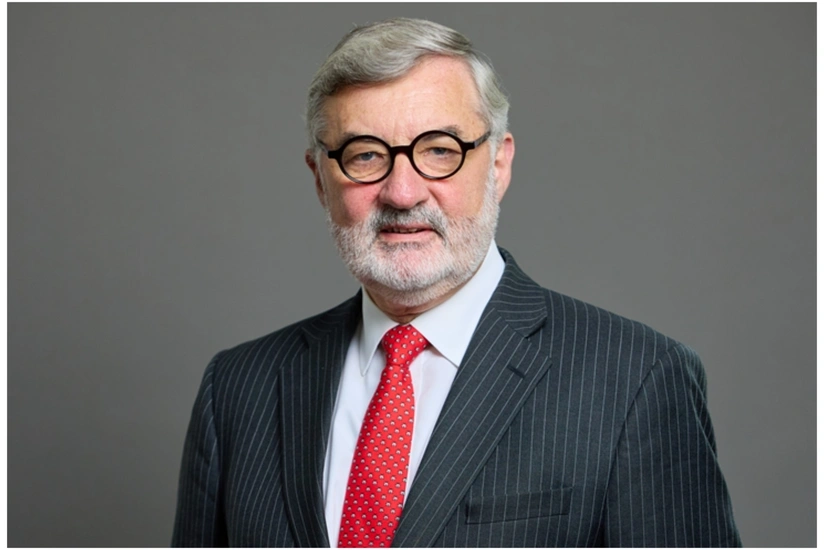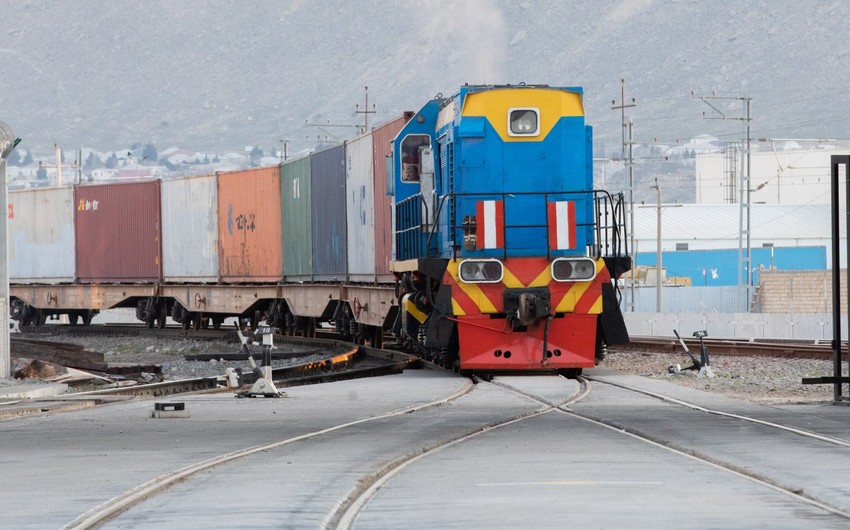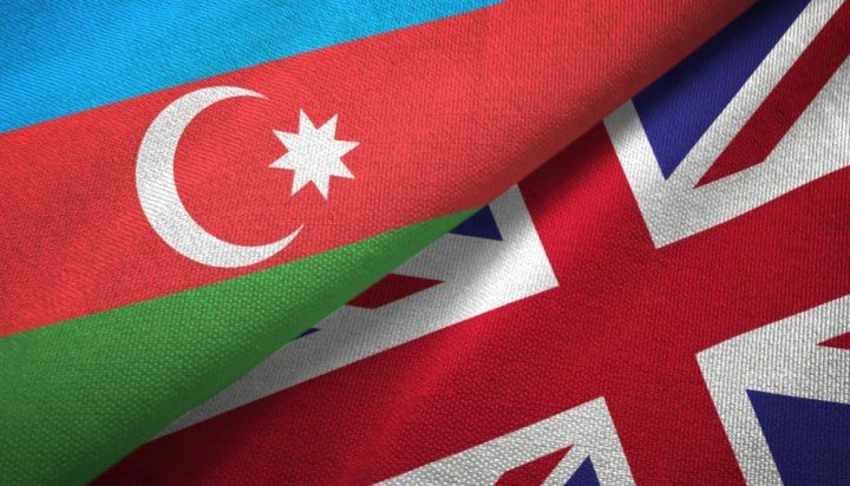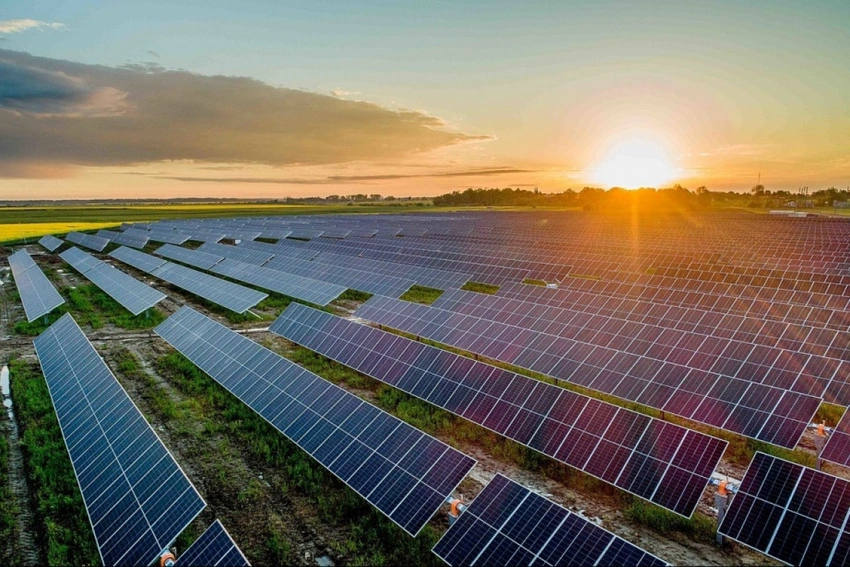Lord: UK may help transform Middle Corridor into modern economic artery - INTERVIEW
- 29 October, 2025
- 15:33

The UK and Azerbaijan are entering a new phase of their strategic partnership, spanning energy, innovation, logistics, and sustainable development. Amid global challenges – from decarbonization and digitalization to the restructuring of trade routes – both countries see cooperation not only as economic potential, but also as an opportunity to jointly shape the future of regional connectivity.
The focus is on developing the Middle Corridor, supporting the green transition, implementing advanced technologies, and strengthening ties between Europe and Asia.
Ahead of his visit to Baku, UK Trade Envoy to Azerbaijan and Central Asia, John Alderdice, a member of the House of Lords, spoke to Report in an exclusive interview about the UK's priorities in Azerbaijan and prospects for cooperation in clean energy, transport, and innovation.
Report presents the interview:
- In light of modern challenges such as decarbonization and digitalization, which areas of cooperation between Azerbaijan and the UK do you consider strategically important for the next 5–10 years?
- Earlier this year, the UK and Azerbaijan agreed to elevate their relationship to a strategic partnership, marking an important step toward deeper collaboration on shared priorities.
The UK's new Industrial Strategy identifies eight sectors of world-leading UK expertise-from clean energy and advanced manufacturing to digital technologies and life sciences. These sectors provide a strong foundation for expanding economic cooperation with Azerbaijan in the decade ahead.
In the coming years, the UK will focus on:
• Supporting the clean energy transition, including the deployment of renewables and low-carbon technologies. The UK is developing the world's largest offshore wind farm, Dogger Bank, and has extensive experience with long-distance interconnectors and grid integration. This expertise can serve as a roadmap as Azerbaijan advances its own clean energy strategy.
• Developing the Middle Corridor, enhancing connectivity and trade routes that link Europe and Asia, with Azerbaijan playing a pivotal role. As an island trading nation, the UK understands the importance of reliable cross-border connections. British experience in logistics, infrastructure finance, and regulatory reform is equipped to support the Middle Corridor evolve from a transit route into a modern economic artery that drives growth.

• Supporting economic diversification, particularly in high-potential sectors such as finance, technology, and healthcare. The UK's strengths in innovation, education, and market governance can help Azerbaijan foster entrepreneurship, improve access to capital, and unlock sustainable growth.
- Is your official visit to Azerbaijan planned in the near future? If yes, could you specify the expected dates, format of the visit, as well as accompanying persons or business representatives who might join?
- I am planning my inaugural visit to Azerbaijan as UK Trade Envoy by the end of this year. The objective of the visit will be to deepen my understanding of Azerbaijan-its people, culture, and economic landscape, in Baku and beyond.
I have already engaged with several Azerbaijani government and business leaders, and I have been struck by the country's industrious spirit. During my visit, I hope to witness firsthand the progress being made in clean energy, regional connectivity, and economic diversification, and to explore how the United Kingdom can best support these national priorities.
As a medical practitioner, I also look forward to continuing the dialogue with Azerbaijan's health authorities, which began in London during the UK–Azerbaijan Annual Economic Dialogue earlier this year.

- Recently, the UK Export Finance (UKEF) completed its first deal in Azerbaijan's aviation industry. Could you provide more details about the terms of this deal: with which entities was it concluded, what does it entail, and does it pave the way for new agreements in the aviation or related sectors?
- Yes, UKEF recently completed its first transaction in Azerbaijan, supporting the acquisition of Boeing 777 flight simulator produced by UK-based L3Harris Commercial Aviation Solutions for the National Aviation Academy. This landmark deal with Silk Way Group, reflects the growing strength of UK-Azerbaijan economic cooperation and follows high-level engagement between our governments. It also aligns with the UK's Modern Industrial Strategy, which prioritizes advanced manufacturing and innovation.
Encouragingly, this collaboration has opened the door to further discussions on future aviation projects and broader infrastructure initiatives. Silk Way has expressed interest in continuing to work with UKEF, but I see huge potential for UKEF to be considered on transport, infrastructure and digital projects across Azerbaijan as well.
- How active is British business interest in Azerbaijan's renewable energy sector? Are there any implemented or agreed projects? Which technologies and directions (solar, wind, hydrogen energy, etc.) are of greatest interest?
- BP has launched its first renewable and decarbonisation project in Azerbaijan-the Shafag solar plant and the electrification of the Sangachal terminal. This is a significant step that demonstrates how the UK's long-standing energy partnership with Azerbaijan is evolving to meet the challenges of the clean energy transition.

I hope that other UK companies will build on this success by exploring further cooperation opportunities in green energy corridors, offshore wind and hydrogen development, grid modernisation, and energy efficiency. Azerbaijan has vast untapped potential in wind, solar, and hydro power, and the UK can be a key partner in unlocking that potential.
The UK is also home to some of the world's leading engineering, design, and consultancy firms, with deep expertise in large-scale renewable projects. British companies bring a particular strength in conceptual design, feasibility studies, and systems integration, which aligns closely with Azerbaijan's needs as it scales up investment in its energy transition.
- How do you assess Azerbaijan's role as a transit hub between Europe and Asia? What new opportunities for British companies are opened by participation in trans-Eurasian transport and energy projects, particularly along the Middle Corridor?
- Azerbaijan occupies a strategic position, serving as a link between Europe and Asia. Its role along the Middle Corridor will be central to shaping the future of regional connectivity, trade, and energy security.
The country has a track record of delivering complex, multi-stakeholder infrastructure projects that span borders. This experience makes Azerbaijan uniquely well placed to provide the stability, coordination, and vision needed to transform the Middle Corridor into an integrated transport and energy network.
And the UK can offer practical know-how to support the Middle Corridor's next stage of development – from customs facilitation to freight management.
UK businesses also bring world-class expertise in airport and port master planning, rail and logistics modernisation, smart transport systems, and digital trade facilitation-all vital for creating seamless, multimodal corridors that attract investment.
In the next phase of the UK–Azerbaijan relationship, I hope to see further collaboration across these areas, with knowledge flowing in both directions as we work together to build a modern economic partnership.
